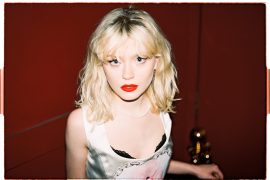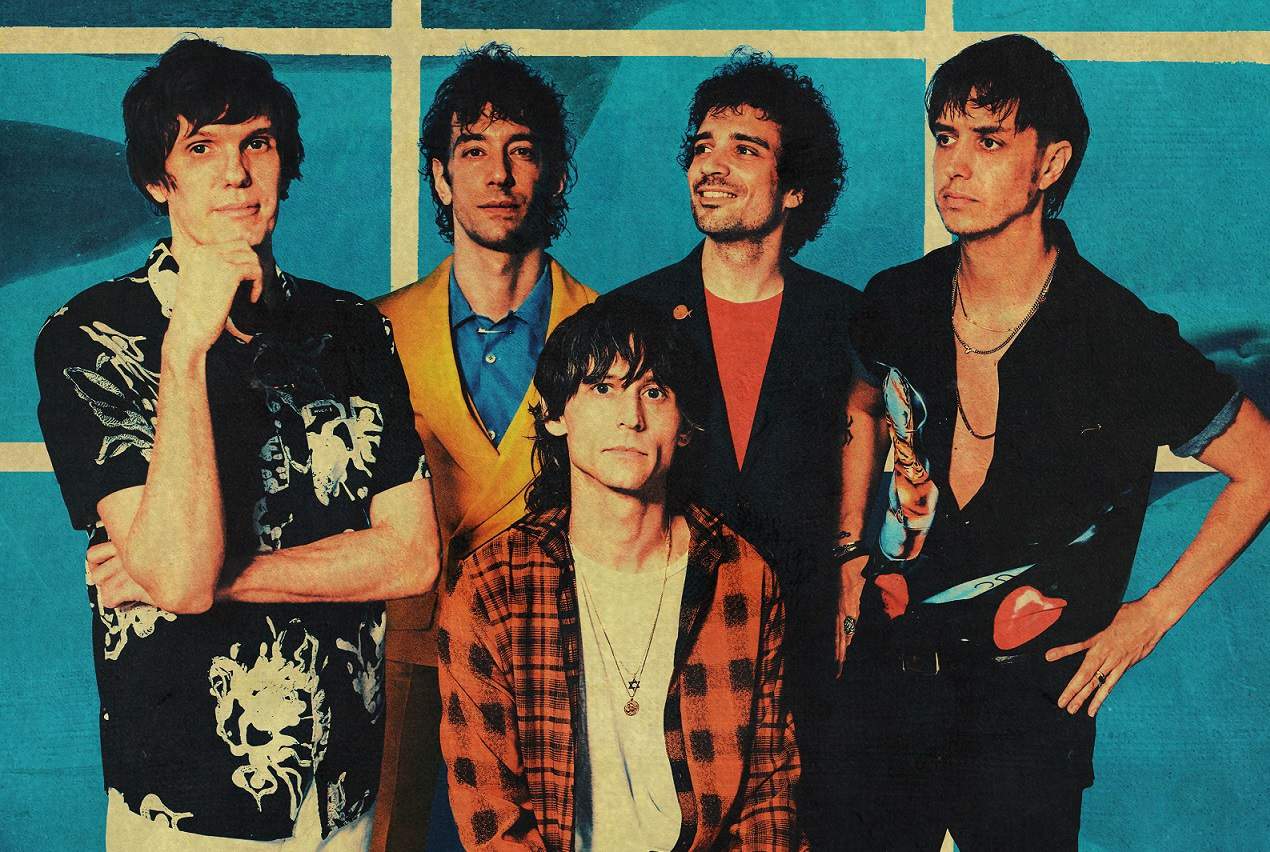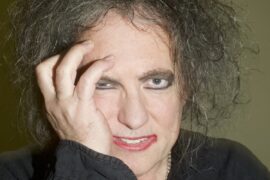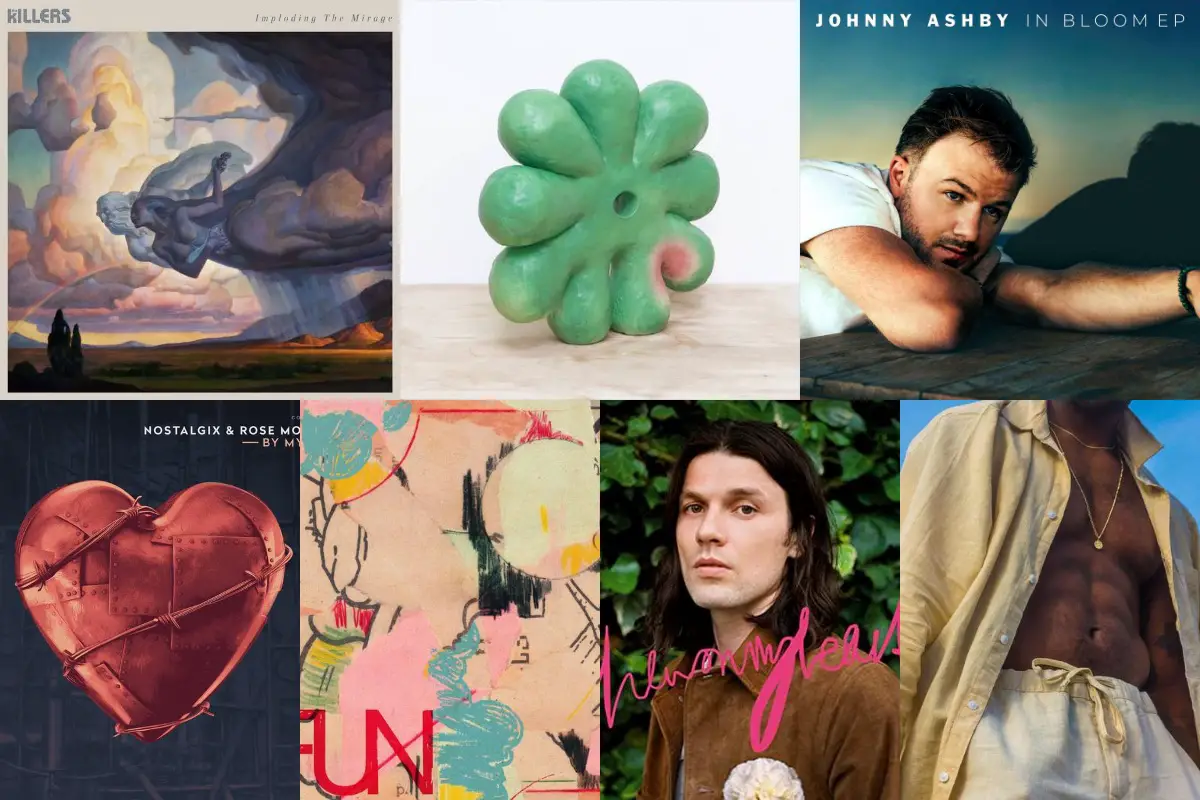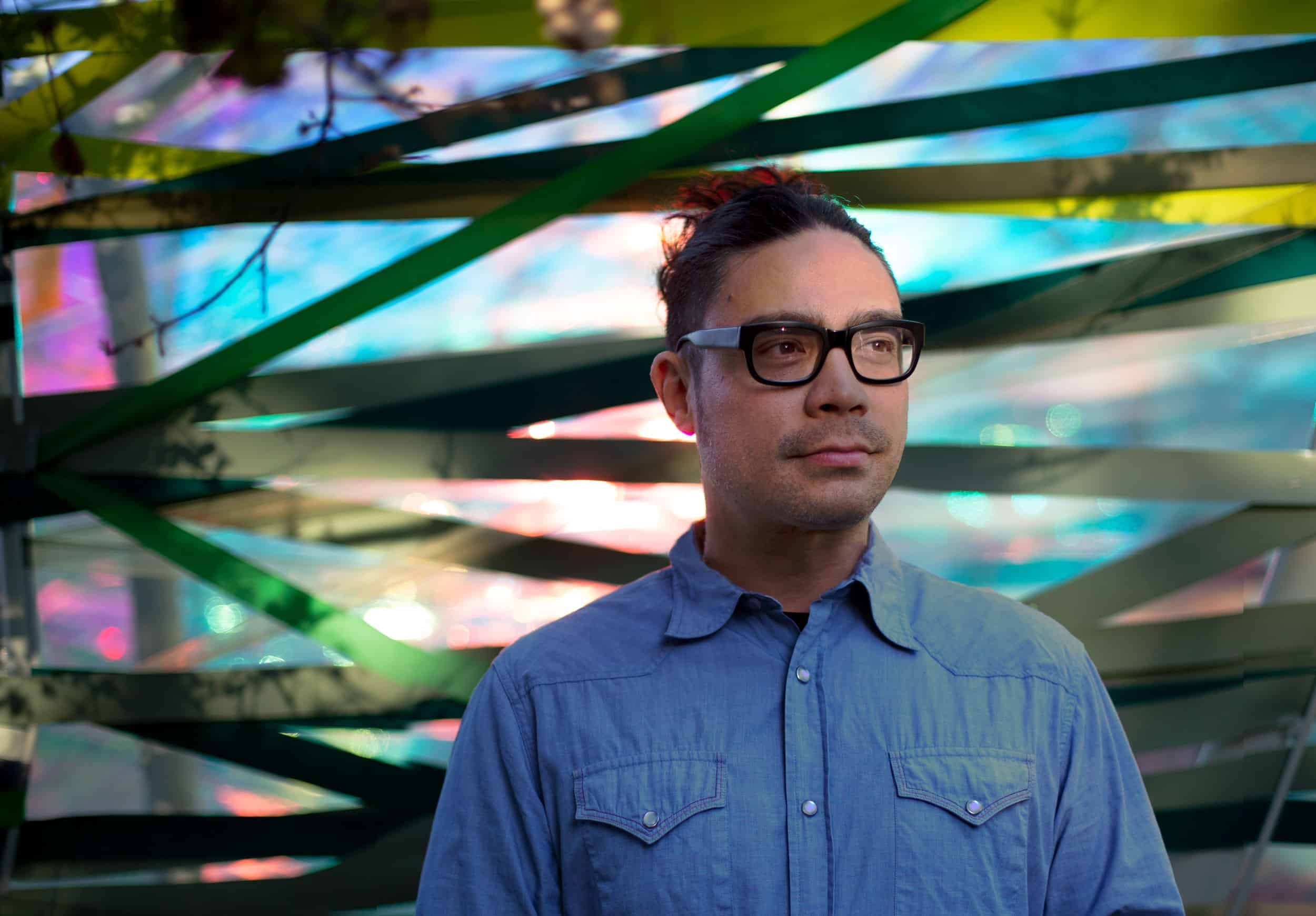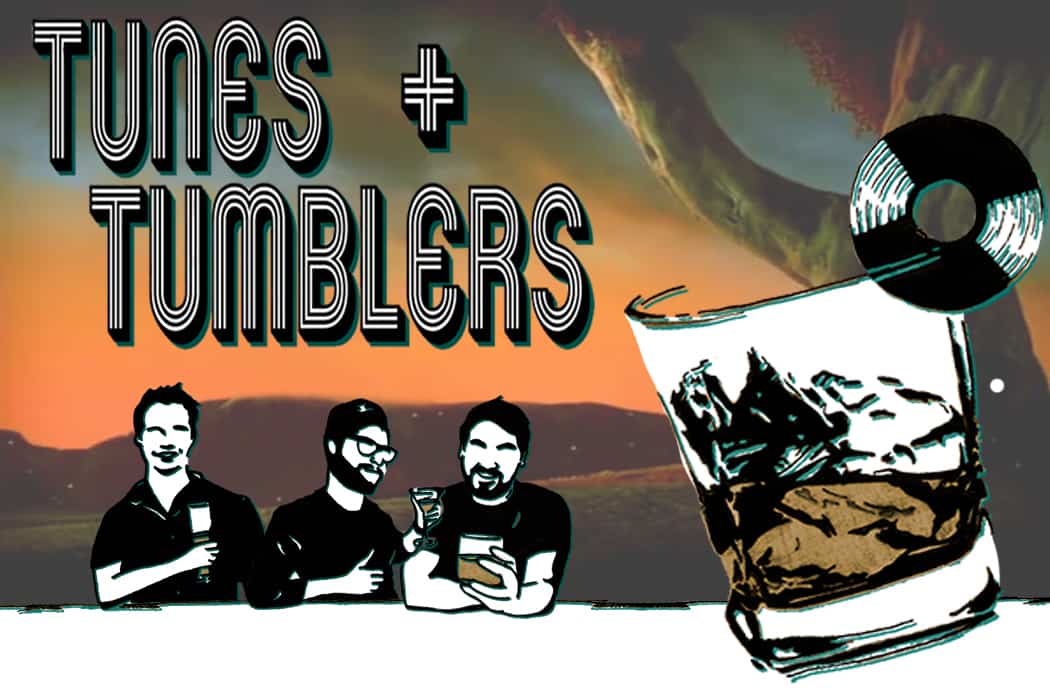Sarah Kinsley catches up with Atwood Magazine for a candid conversation about endings and beginnings, collaboration, and her bold, beautiful new song “Last Time We Never Meet Again,” the cinematic and celebratory lead single off her upcoming debut album, ‘Escaper’!
“Last Time We Never Meet Again” – Sarah Kinsley
‘Escaper’ is very much me trying to capture this moment between endings and beginnings and the very cyclical understanding of love and loss, and how to move through that.
There’s few worse feelings than cutting someone you once loved out of your life.
They’re gone from your present, but they’ll never be gone from your past; and whatever your feelings may currently be, the good times were still good – great, even. So how do we square away our cherished memories – those highest of highs – with the painful, no-coming-back-from-this lows?
For Sarah Kinsley, the answer lay, as it often does, in a song.
“So this is it? Our lives were only a blimp of some good thing then, and whatever it is now,” the alt-pop artist sings, soaring over a flurry of sweet, spirited strings. Her voice aches softly, reflecting the weight of what she knows will be a life-changing event; she’s still processing everything, piecing together past and present, what once was and what is now, who she once was and who she is now. Of course, there’s a joke right there in that first line – blimp instead of blip, a cheeky nod to her first pass at the lyrics and a mistaken phrase.
But what hits hardest of all are Kinsley’s euphoric melodies – because instead of wallowing in pain or heartache, she’s channeled her sadness into a thing of pure, sun-kissed cinematic beauty. The radiant lead single off her highly anticipated debut album Escaper, “Last Time We Never Meet Again” marks an exciting new beginning with another chapter’s ending – and it does so with electric energy, grace, and feel-good flare.
Why dwell in darkness, when you could bathe yourself in light?
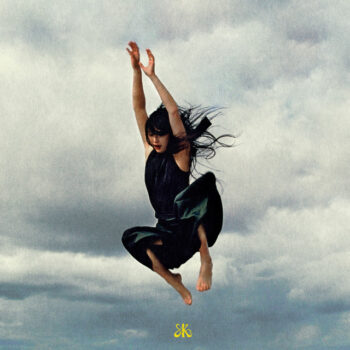
So this is it
Our lives were only a blimp
Of some good thing then
And whatever it is now
Holding on
To something you don’t really want
Is it me?
Is it you in the mirror?
(In the mirror in the mirror in the mirror)
Shut me out
Leave the past in your own mouth
Don’t wake the beast now
You’ll regret your kindness somehow
I’ve said enough to fill a thousand cups
And you drank it down all fine
But this one is mine
I can play the villain in the next life
Released June 20, 2024 via Verve Forecast, “Last Time We Never Meet Again” is an enchanting, inspiring, and invigorating return for one of the alt-pop world’s freshest, fast-rising voices. Part reckoning and part revelry, Kinsley’s first song following last year’s critically acclaimed sophomore EP Ascension is a “half-baked apology and a first try at being the bigger person,” according to the artist.
It’s her heavy, yet nonetheless lighthearted attempt at the high road, unpacking a seismic life event in three minutes of spectacular, soul-stirring sound. Her music is warm and wondrous, her lyrics at once achingly raw and tongue-in-cheek – all of which helps capture the magnitude of what is undeniably a deeply meaningful moment for the artist, as she begins to unravel her debut album.
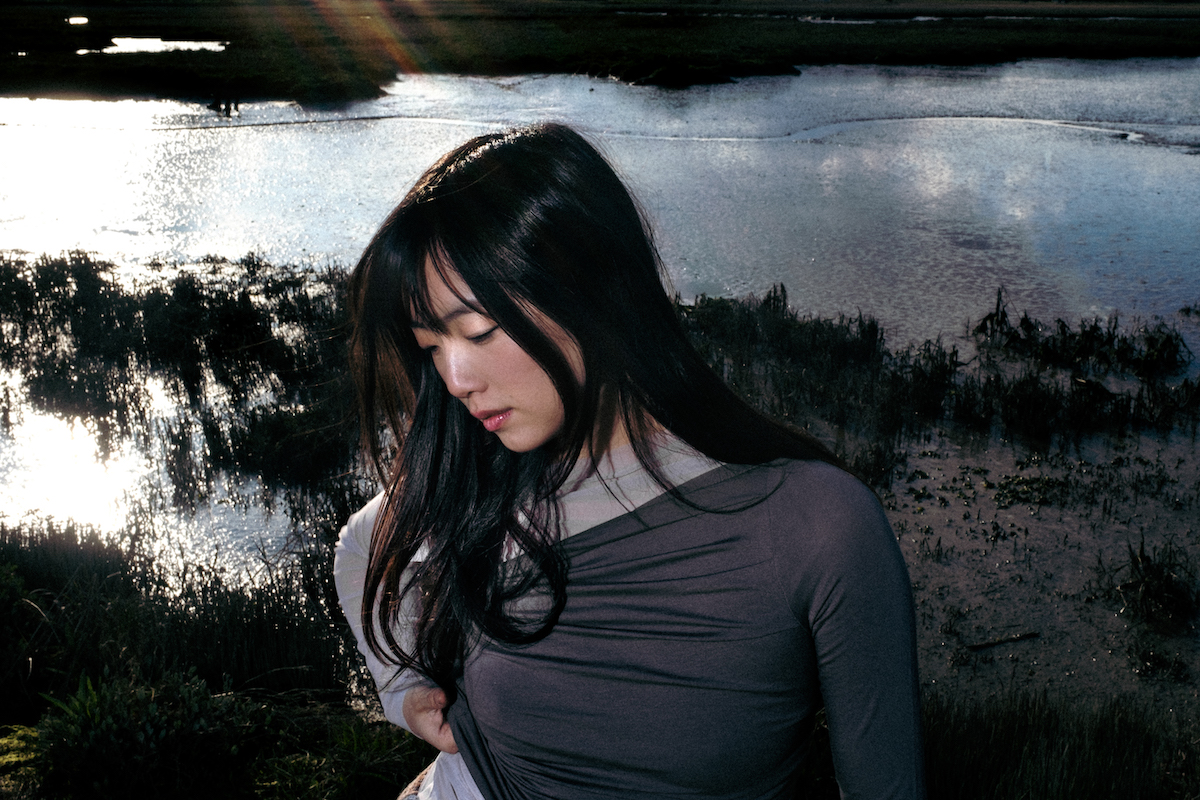
Set to release September 6, 2024 via Verve Forecast, Escaper is Sarah Kinsley’s magnum opus.
Co-produced by Grammy Award-winning producer John Congleton (Angel Olsen, St. Vincent, Sharon Van Etten), the twelve-track adventure finds Kinsley exploring “old friendships, loss, romantic love compared to the love of close friends, and relationships fizzling that once flourished.” The 23-year-old singer/songwriter and producer – an Atwood Magazine 2024 artist to watch and former Editor’s Pick – shines bold and bright as she lets loose like never before, bringing listeners deep into worlds real and imagined as she journeys through life’s most visceral emotions and vulnerable experiences.
“This record was meant to be grand and unstoppable: A beginning descent into freefall,” Kinsley says of Escaper. Whereas her previous songs and EPs were made from scratch in her New York City apartment, her new album is the product of studio collaboration. “One realization you have eventually as an insular, more introspective person is that there’s a world outside of yourself waiting for you to look into it,” she adds, noting how working with Congleton proved transformative to both herself and her work, giving her a creative partner to bounce ideas off as well as a trove of synths and other instruments to experiment and mess around with.
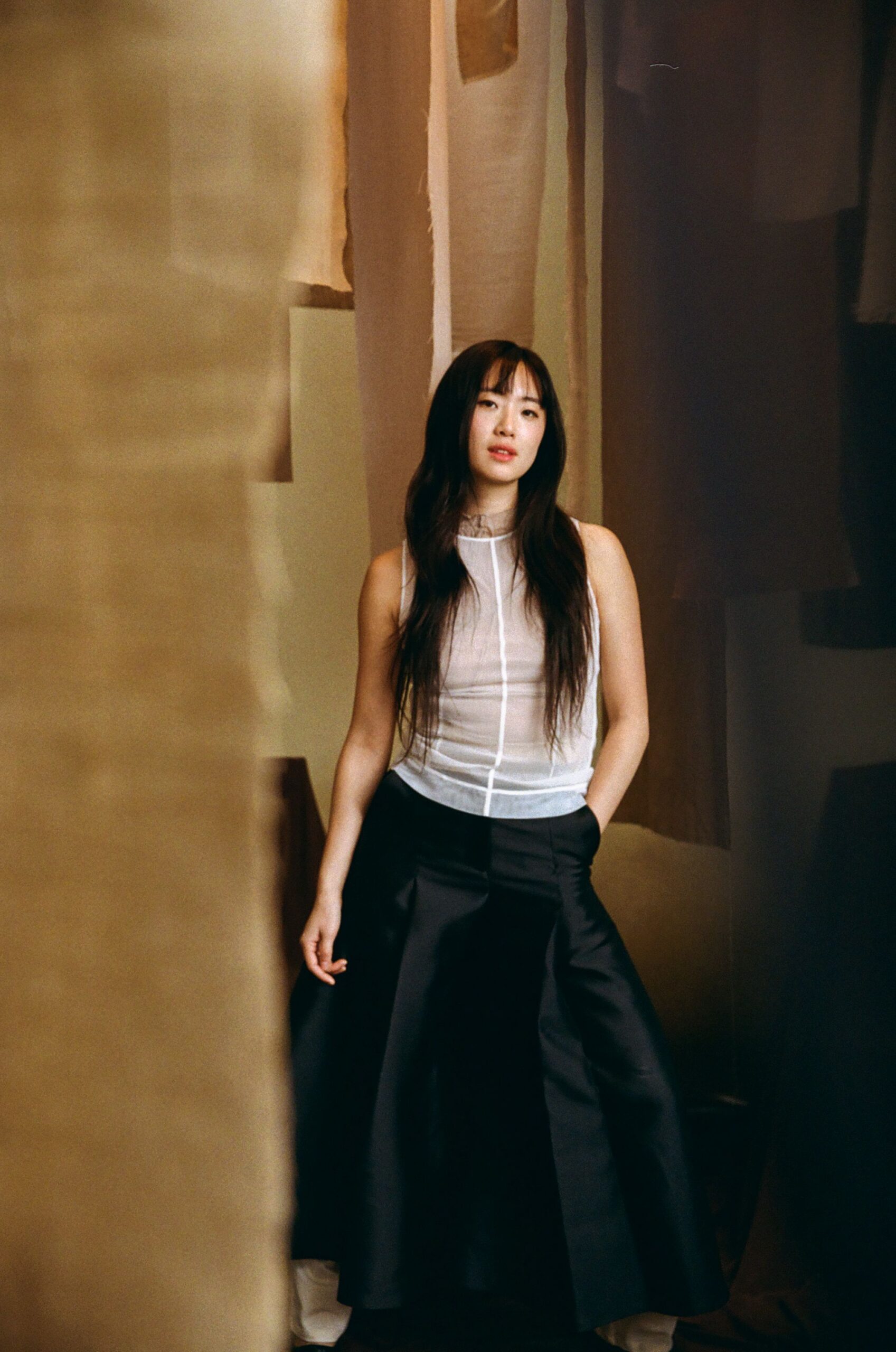
“Last Time We Never Meet Again” is our first taste of all that’s to come – and a seductive, stunning world unto itself. Kinsley calls it the most vulnerable song on her record, but adds that it’s meant to be celebratory. “It’s trying to make something that is really sincerely a goodbye – the closing of all these worlds that you inhabit with the people you love. A celebratory goodbye.”
“It’s about truly never speaking to someone again,” she elaborates in conversation with Atwood Magazine. “It’s a sort of homage to things past. It’s a very nostalgic song. I was writing about the ending of a friendship that had carried me through a very pivotal time in my life, and I feel like when it happened, I wasn’t really sure how to describe it and where to begin. And this was the first way I began to process it, through this song and trying to immortalize our friendship and the beauty of it, regardless of a very intense or extreme ending, which is why it’s very upbeat.”
“There’s a lot of synths and strings. Everything is light and it’s very delicate in a way,” she adds. “It’s a very fragile concept and thing to write about, but I think filling it with drums and very intense production makes it a bit easier. But that was the inspiration for the song. Why it’s the first one, I think, is just because I’m exploring moving through different portals and worlds. The idea of the ending of one as the beginning of everything else felt very right, and it felt very correct and good to start with an ending, ironically.”
And I understand
We can never speak again
It is inevitable but
I still think about the days
We’d sit and dream of other lands
Off to save the world from its own hands
But this is the last time
We will ever meet like this again (again)
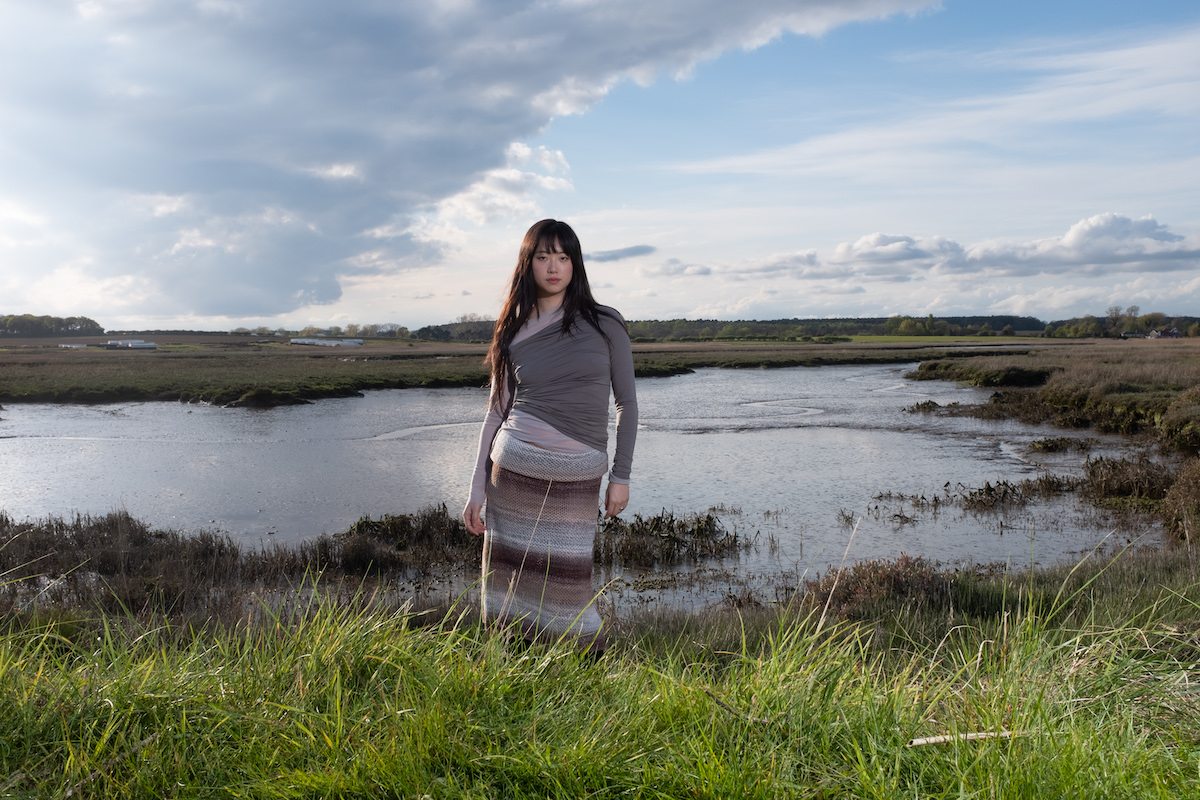
Maybe the best closure is the kind we can all sing at the top of our lungs; the kind that turns life’s hardest moments into uplifting anthems full of raw passion and smile-inducing sound.
“Last Time We Meet Again” is electric, euphoric, and irresistible: The perfect bittersweet ending in one respect, and an exhilarating first look at Sarah Kinsley’s upcoming debut album. It truly is a seductive celebration.
Atwood Magazine recently caught up with Sarah Kinsley for an in-depth conversation about “Last Time We Meet Again” and Escaper. Dive into her new music in our interview below, and stay tuned for the upcoming release of her debut album, out September 6 via Verve Forecast!
“I love how infectious it is. I love the spirit of the song… I love how energetic it is; I love that it still makes me wanna dance after having listened to it thousands of times,” she says of her current single. “I want people to take away a real keen sense of hope and understanding – that that is a very beautiful thing, to let go. And it’s very, very freeing, and it can make you wanna dance sometimes!”
And I hope you get
Everything you wanted
I hope the universe
Bends down to offer itself to you
But for myself
I hope I hear your name
And I feel absolutely nothing
Let me be free of you
And I understand
We can never speak again
It was inevitable but
I still think about the days
We’d sit and dream of other lands
Off to save the world from its own men
But this is the last time
This is last time
This is last time
We will ever meet like this again, again, again
— —
:: stream/purchase Escaper here ::
:: connect with Sarah Kinsley here ::
“Last Time We Never Meet Again” – Sarah Kinsley
A CONVERSATION WITH SARAH KINSLEY
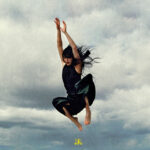
Atwood Magazine: Sarah, I think I wanna start at the very top. What's the story behind the “Last Time We Never Meet Again,” and why did you choose this song as the first release of your debut album?
Sarah Kinsley: Two hefty questions! Yeah, “Last Time” is a very celebratory song for me. It’s been very interesting reading and hearing people’s interpretations of the songs. I think some people have really leaned into the very extreme of like, it’s about going no contact. It’s about truly never speaking to someone again, which I did write in the lyrics, so it’s not a total stretch. But it’s a sort of homage to things past. It’s a very nostalgic song. I was writing about the ending of a friendship that had carried me through a very pivotal time in my life, and I feel like when it happened, I wasn’t really sure how to describe it and where to begin. And this was the first way I began to process it, through this song and trying to immortalize our friendship and the beauty of it, regardless of a very intense or extreme ending, which is why it’s very upbeat.
There’s a lot of synths and strings. Everything is light and it’s very delicate in a way. It’s a very fragile concept and thing to write about, but I think filling it with drums and very intense production makes it a bit easier. But that was the inspiration for the song. Why it’s the first one, I think, is just because I’m exploring a lot of this, like, moving through different portals and worlds. The idea of the ending of one as the beginning of everything else felt very right, and it felt very correct and good to start with an ending, ironically.
It's not lost on me that an album – especially your first – has so much weight placed on it. Albums represent eras of an artist's life. So what does this era represent to you, especially one that you're starting with an ending?
Sarah Kinsley: Yeah, I think it’s interesting. The singles versus album conversation is sort of always hovering around people, and I think it’s really interesting though because it is like you do get a chance through singles to really gently entice people and then suddenly be shoved into an entirely different scheme of thinking and way of living through music. So I really enjoy, and I really enjoyed in this process, figuring out what are the stepping stones for this album, the era as you put it. I think it’s strange. It’s weird when you kind of go back in time and retrospectively look at any part of your life, because it just feels like everything is always building to something. It always feels like the moment of this debut album has been preceded by everything in a very specific order. Or is it just that way because I’m looking at it that way? I don’t know, but there’s a lot.
I think Escaper is very much me trying to capture this moment between endings and beginnings and the very cyclical understanding of love and loss, and how to move through that. I think escape is a very real form of survival and it’s very necessary imagining other worlds, becoming other people, playing out different lives in order to move through the one you actually inhabit. I think that’s a real forceful way to live. So I’m trying to explore the different complexities and sides of that through this album and moving through the weird cycle of like, yeah, every beginning has an end and every end has a beginning. It’s a very strange thing to believe in and know and have faith in, if that makes sense.
Speaking of beginnings and endings, I know it's only been a year since your last EP! How does the Sarah Kinsley we're getting to know today compare to the version of you we heard on Ascension?
Sarah Kinsley: Whoa, this is so interesting. I feel like through this album process, I’ve just become a lot more bold and a lot freer in ways that maybe I wouldn’t have been. I think maybe part of that is due to the fact that I had a true collaborator throughout the album process who was very unlike me in terms of my usual process and my approach, which includes being completely insular and not speaking to people and just trying to grow and blossom an idea in your own head, which has its beauties and perks and also detriments.
I feel like I’m not even really sure what the main difference is. It’s funny, I do this thing where I write letters to my future self on my birthdays, and every time I read them, I’m just like, oh my gosh, you’re so young and you’re so ignorant, you don’t know anything. And then every year, it happens. And I almost feel like what you’re asking me is sort of similar to that feeling of like… That whole thing that people talk about of like, the more you know, the less you know. But at least musically, I feel like I’ve expanded a lot of instruments I’ve been playing, things I’m trying to grapple with, themes… I feel like I’m more vulnerable almost, or more trying to be way more vulnerable and brutally honest with myself about things. And I feel like that’s really clear in the writing for the album versus Ascension as a whole.
How have those songs grown and evolved for you over the past year since its release?
Sarah Kinsley: Thank you for asking me so much about this EP. Yeah, playing them live has been the most massive privilege. I feel like sometimes it’s very easy to get lost in the reach of a song online and what kind of life it has in the black hole of the internet, and then you play a show… I played a show in London, it was like the last show of this tour in Europe and the UK for ‘Ascension,’ and we always finish… We would finish the set with “Oh no Darling!” as our encore. And it was wild. It was so wild to play that song live because it really took on a completely different shape where the words… You know what the lyrics mean and what… I know why I wrote them obviously, but you hear them sung back to you and they have a different timbre, they have a completely different shine.
When there’s a room of people saying, “I was a kid until I fixed it,” you start to feel this strange connection. My connection to the lyrics that I wrote completely shifted, which is maybe like an ambiguous answer to your question. But I feel like they just became a lot more grounded through other people and through my experience of hearing people’s personal connections to the song. I would talk to people who had very specific anecdotes to do with “Lovegod,” or who connected Ascension to people in their lives who passed away. It was a very intimate experience to be given a lot of these stories. And I find that as the continued life of a song, is the most important thing for artists and for music generally, because that’s where the music lives, that’s where I feel it the most, and that sort of change I think happens quite quickly when people let you in on their lives and just why the music has existed for them, which is cool.
It's one thing to get a DM from somebody, it's another thing to actually see it in people's faces when they hear you start to play a song. You released a few songs pre-Covid, but then came the pandemic and you released the bulk of your material those first two years during it, so I can only imagine what your most recent tour has been like – and to experience that in-person response.
Sarah Kinsley: Yeah, it was strange. COVID was a really weird time. Yeah, I think I released two songs before COVID. It was strange. It was a weird time. Even when I think about it now, it’s like, how did anyone make music during this time? How did we do that? Was it just out of fear or boredom or complacency? I have no idea how anyone did it. It was a strange, strange time to be alive, I think, gratefully so. But yeah, crazy to think about.
You've talked about your new song “Last Time We Never Meet Again” as a celebratory goodbye, trying to make something that is really sincere and closing all these worlds that you inhabit with the people you love. Where, for you, did those emotions stem from? Was there a catalyst experience that spurred this song to life?
Sarah Kinsley: Yeah, absolutely. It was literally like the dissolving of a friendship that happened. And I was like, I have nothing to do except write about this. And it was also just like, I don’t go to therapy anymore, so there’s only one way to get through this [laughter], which is to write about it. I should really do that again. But yeah, that was the catalyst. I feel like most of the things I write about have either happened to me or someone I know. I find it very cool that there are a lot of songwriters who can write as extensions of themselves, as characters. I haven’t been able to do that yet. I’m interested in it, but yeah, that was the sort of catalyst, just a lot of emotions really. I think anyone who’s gone through any end of a relationship understands that you just feel clinically insane, because you feel attached to someone still, you feel anger, you sort of flip through so many emotions daily that it’s hard to keep track of. But yeah, the one I landed on finally was just one of, if not happiness, wanting to remember happiness. I think that was the most important for me.
The way I think about things like that is, you can appreciate those who were in your life for who they were to you when they were there, even if they're no longer with you now. It's one of the few ways I've found I can square away similar experiences; to not look back in anger of it all.
Sarah Kinsley: Totally. Yeah, that’s a big theme of this song, for sure. I think it’s hard to. I don’t really give into… I think a lot of people try to counsel you on what’s the best thing to do after this sort of thing happens, and it really seems that people are really in two minds about, oh, it’s so much easier to be angry or it’s so much harder to be angry. People are always sort of advising you on how to deal with emotions, but it’s so strange ’cause I do think some days it’s like, I’m just pissed off and it’s what it is. And other days, it’s like, well, forgiveness is just easier today. It’s just a weird thing and I feel like at least my mind changes every day about it. But yeah, what you said is definitely true.
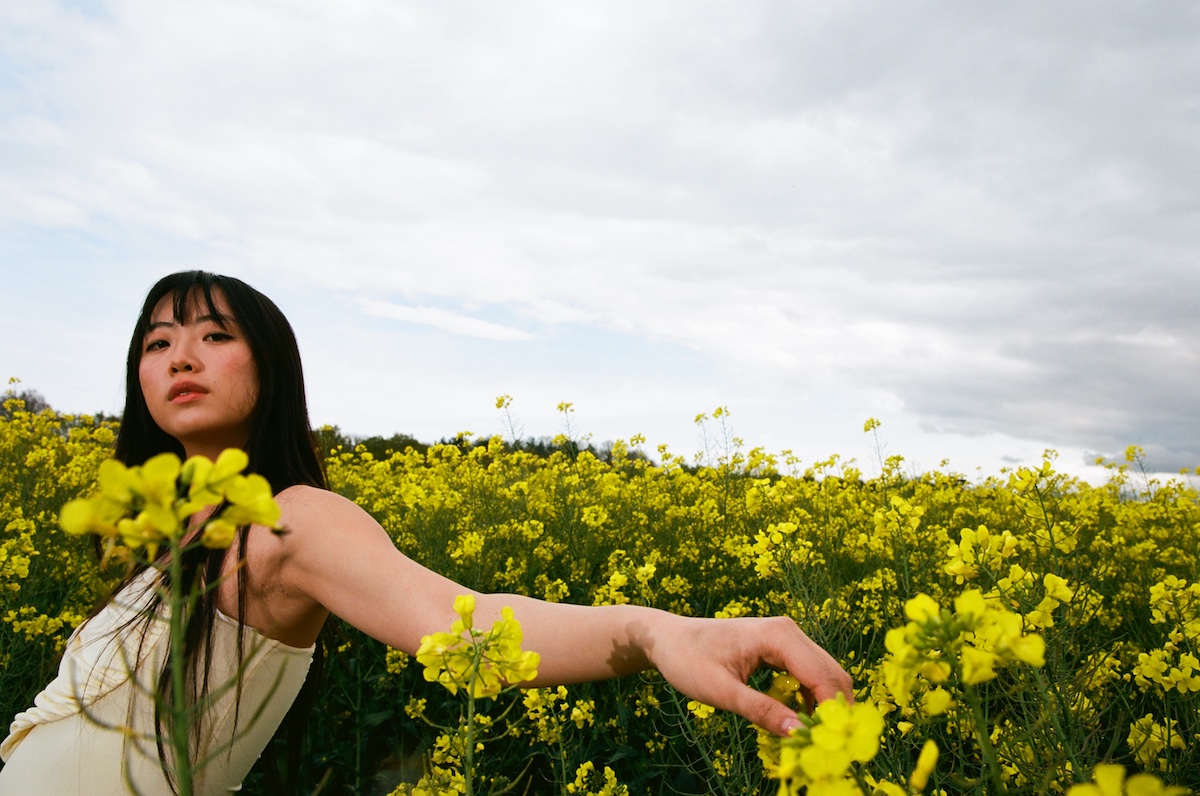
One of the things I really love about this song is the second verse, “Shut me out. Leave the past in your own mouth. Don't wake the beast now. You'll regret the kindness somehow.” I was curious if you could talk a little bit about those lines, those first two verses and what world you were creating.
Sarah Kinsley: Yeah. I wrote a lot of really angry verses. [laughs] I wrote a lot of very petty versus, very like it’s straight out of a diary of a 13-year-old. I wrote so many ridiculous verses to fill that spot. And it was just like merging a bunch of different pieces together to create something that did not have too much of this twang of any sort of anger, but also that wasn’t subtle enough that it became soft, because I do think the verses are where I am being the most honest. I feel like the choruses are just these very lighthearted, like, “I get it, we’ll never see each other again.” Those are more comical in my mind. But that verse is… I guess it’s just sort of about the beginning of this friendship where you genuinely feel like you are in-between a door between the future of a relationship and everything else that has ever occurred. And you’re in this weird hallway where it’s like, there’s really no way to go and you’re sort of trapped here because the future doesn’t really contain this person anymore. And you already know that, but you might be too fearful to open that door. And the past has so many things that are almost too difficult to deal with or look at that you’re just here.
So I genuinely just felt claustrophobic at a certain point. And I think that line stemmed from that, the “Shut me out, leave the past in your own mouth” was one of those more catty remarks, I will say, because I do think of relationships, and truth in general is very much boiled down to he said, she said, or it’s your word literally versus mine. And that’s the irony of it, the satire of just like, there’s no truth when it comes to these things. There’s no objective of what happened. There’s just how I see it and there’s how you see it. And that was hard to come to, ’cause I was like, I’m right. I know I’m right. And I’m a very stubborn person sometimes, so that was hard to deal with. But that line was just purely emotional, “Leave the past in your own mouth. Don’t wake the beast now, you’ll regret your kindness somehow.” I’m not really sure what the beast is. I was talking to a friend about this, and my partner, and I think that the last line, I kind of know exactly what that is. It’s just like when you… It’s kind of like when you burn yourself and you’re like, I knew I shouldn’t have done that, and I’m smart enough to know that, but I did it anyways. And, “You’ll regret your kindness somehow” is kind of like, I don’t know how it’ll happen, but you’ll regret trying to stir up this thing, which is… It just can’t exist anymore. Anyways, a very long answer to your question, but that’s kind of what I think about.
The other line that really stood out to me was the end of that same verse, “I can play the villain in the next life,” which I absolutely love. It's such a tidy way of asserting your right to be your own protagonist. And I think we all have that right. Do you have any favorite lines in this song?
Sarah Kinsley: Yeah, one of my favorites is also “I can play the villain in the next life,” because it took a while to figure out the structure of that phrase. I sing it kind of funny too, it’s like, “In the next life…” like, I always was kinda giggling at myself while recording it. But yeah, I love that line too, thank you. I think my other favorite is just the very first line, of like, “This is it. Our lives were only a blimp,” because it’s obviously not “blimp.” That’s the wrong word. It’s meant to be, “our lives were only a blip,” but I wrote “blimp” originally, thinking that that was the correct word. [laughs] And then two people corrected me and I was like, “You guys, please stop telling me how to do my job.”
And then someone just put a dictionary in front of me, and I was like, right, we’re not talking about the Goodyear Blimp, I’m talking about a blip, like a short amount of time. But I thought it was kooky and kind of silly, so we just kept it in. And that just is one of my favorite lines because of how silly it is. I feel like it brings out the childishness of the song too, to have that in there. So I enjoyed that and I love a semi-natural mistake every once in a while.
I want to switch gears for a second to talk about your collaborator. John Congleton's name precedes him. He's been the producer for a number of my favorite albums over decades. How did you two connect and end up working together? What was your experience like with him?
Sarah Kinsley: I have so many thoughts about John as a person – I think that is the hugest difference between who I was during Ascension. That person then would just be like, what the hell are you doing in a room with him? What is going on? [laughs] in the best way of just like, what did you do? But I had been thinking for many months about, who am I gonna collaborate with this album on? Because I was like, am I gonna produce it alone as I’ve always done? And that other voice, which was like, no, no, this is gonna be a huge feat to just even finish it regardless of how it performs, regardless of what people think about it. And it needs to be done with someone else, because I wanted someone else to be the vessel for more thoughts. But my manager, Beth, was like, before you even look up names, I want you to just write down 10 of your favorite albums of all time, based on production. And so I was like, Okay. Angel Olsen’s 2019 ‘All Mirrors.’ St. Vincent, ‘Masseduction.’ Sharon Van Etten, or whoever it was. I wrote down 10 albums, I can’t remember who the others were. And I had heard his name before, but I had never really done that much research, weirdly, into the production of the albums that I loved. And his name was on that list for maybe three or four times out of 10, which is kind of insane. Two is already crazy.
And so she was like, okay, we gotta reach out to this guy, because it can’t just be chance that you happened to like all of these albums and not even know that he was behind most of them. And so, yeah, we got connected. We met. I was fucking terrified of him at first, because this is just somebody who has lived literally in my head without me knowing. It’d be like finding out some crazy information about a long lost friend or something. Just, I feel like, someone that I had literally lived parts of my life with. I mean, I had been broken up and crying to “Chance” by Angel Olsen through Riverside Park more times than one would think. I can tell you exactly what happens in that song, but yet, every time I listen to it, I find something new.
And so I was just amazed by this person. And I don’t know if I do idolize people or believe in that, but whatever power that has for musicians, I felt that all the time when we were in the studio, and I was just so like, oh my God. I just felt so bewildered to even think about the idea of making something together. And it was a really fun process. This song was difficult because I had created a demo for it already where I had produced things, and so I was already really, really drawn to it and I didn’t wanna let go of it out of stubbornness. And he was very much like, You need to let go of things that you have done, and you need to throw paint at the wall. You need to throw everything at the wall and just feel and understand based on your instinct what needs to stay. And he has really incredible instinct, which is something I don’t really relate to at all, actually. He is very honest and very quick to say, this doesn’t fit. I don’t feel something within me. And that was really strange to have as a collaborator and also mentor, I felt like, in the best way. Yeah, it was one of the craziest three weeks of my life.
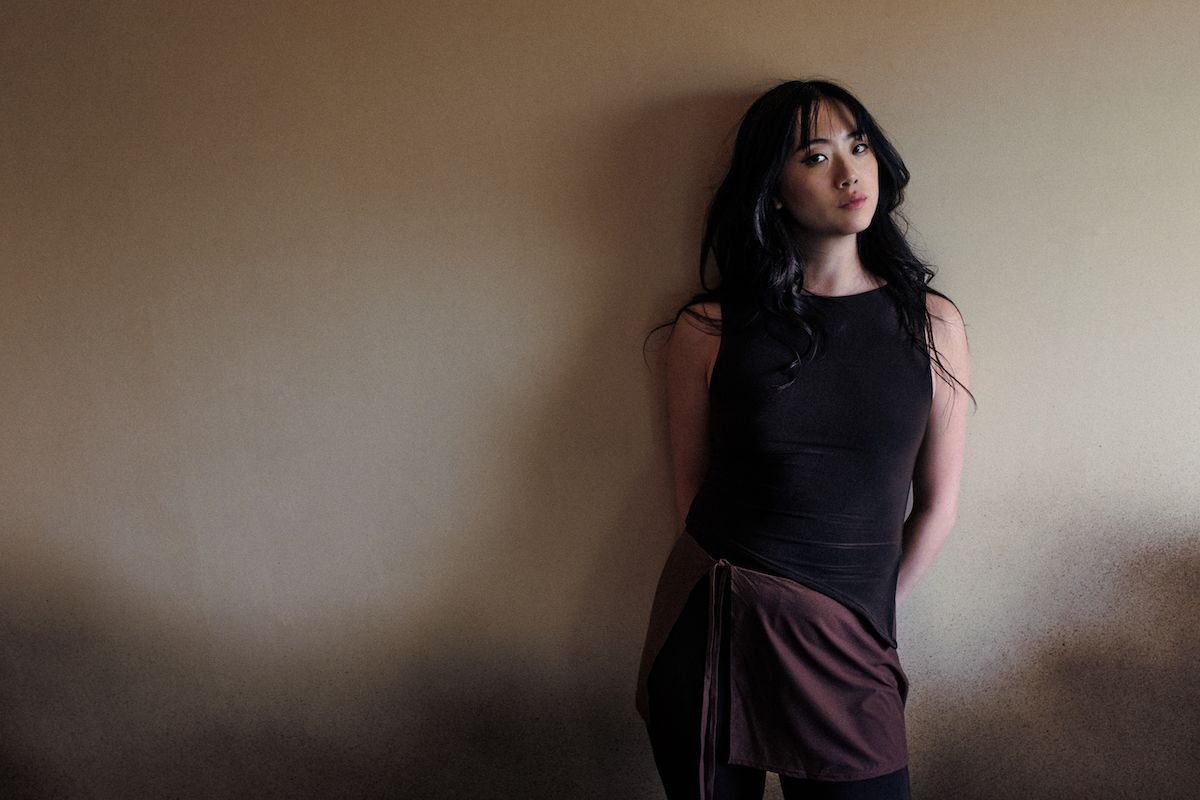
It's good to have someone pushing back; it's hard to find constructive criticism, especially when people are close to you.
Sarah Kinsley: Yes, it is. And I also think that I’m a firm believer in like, when people really love you, they will tell you exactly what they feel, which is like, this isn’t good, or, this isn’t you, and that’s way more meaningful than any thumbs up or any sort of satisfaction of like, sure, could be. I’d always rather have that as well.
One of the things that really struck me about the song from the moment I heard it was that it felt like a shift from the music we heard last year on Ascension. What was your musical vision or your sonic vision for “Last Time,” and how did you and John together go about making the song what it is today?
Sarah Kinsley: I think sonically I always knew that it was going to have strings in it. And I knew I wanted to record them live and wanted to blend a lot of repetitive digital aspects with more organic natural sounds. We very early on knew that it was going to be a drum machine and not live drums, but we were going to record live strings, so we recorded this quartet of two violins, a viola, and a cello, and messed around with that. But it was strange because we had this orchestral, very beautiful, delicate palette and we had a lot of very droney synths, but then we also had this bass that was just chugging throughout the entire song, just going, gung, gung, gung, gung, gung, gung, gung, gung. It was just sounding like someone knocking on a door.
And we struggled a lot with understanding how to free a listener from repetition, because it gets tiring after a while, you’re listening to endless eighth notes. But we had so much fun. I had so, so, so, so much fun figuring out the drum machine riffs throughout the song because they add so much life to it. But I think we always knew we were going for this very… I mean, I’m not even sure who I would select as it, but a general feel of maybe the ’80s and some more modern synth pop. I played maybe like six different synths for this. It was so much fun. That’s definitely something I could not have done without John ’cause that man has some very nice synths that I was like, if you turn around, I’m gonna take one when I leave. [laughs]
But yeah, it was awesome. I played this beautiful Oberheim synth, an amazing… We played this Moog bass synth. But it was crazy because in the mixing process, we were struggling a lot with like, okay, we’ve recorded all these things, it’s done, but it sounds so repetitive. And he was like, give me literally a day. Give me the right to just mess around with this and just change it. If you let go of the idea, just let me see. And I was like, ah, fine. And it was my A&R’s idea as well. And I was like, well, I’m already tied to the old version, so I know I’m not gonna like it. And then he emailed back the next day and we were like, shit, this is the one, it’s so good. So yeah, it took that sort of experimentation and fiddling around. I don’t even know what he did to this day, but it worked!
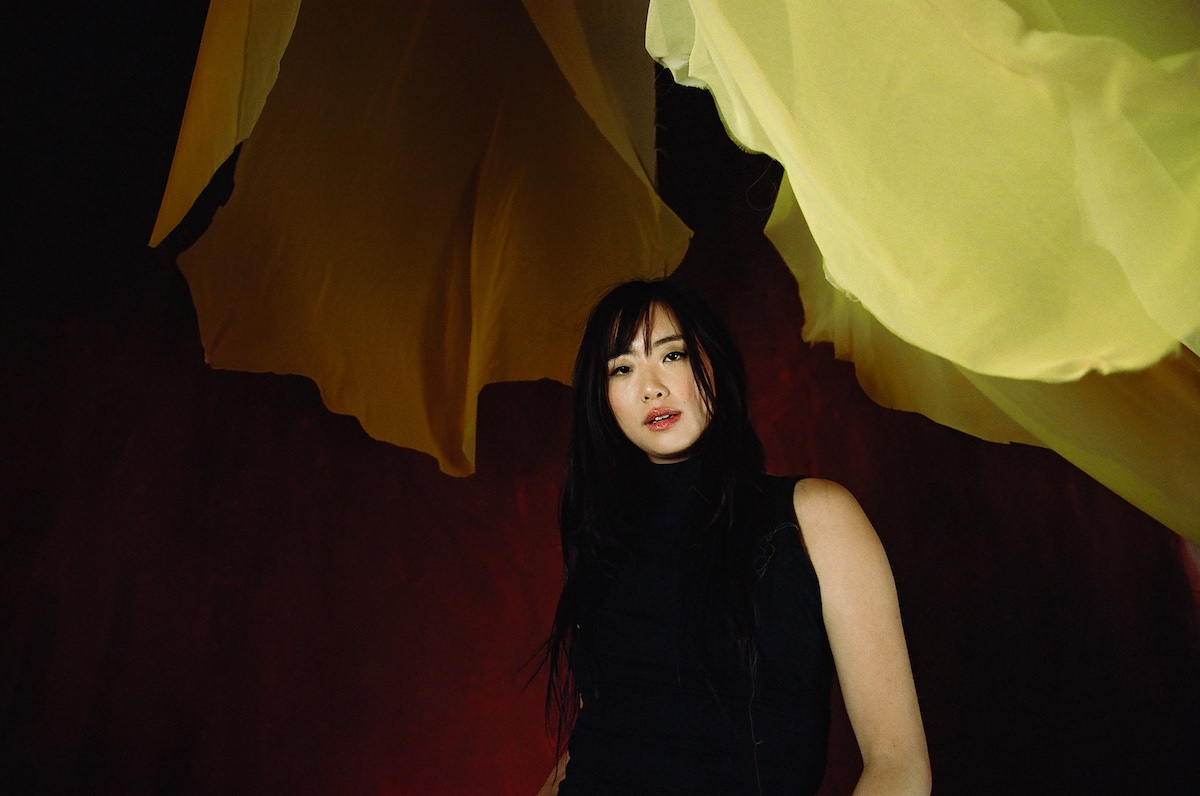
That's really, really cool. And I don't know if the goal is to take away lessons from him and put them into your production again someday, or to keep collaborating, but either way, I can imagine there's a bit of humility there and a bit of excitement there as well.
Sarah Kinsley: Yeah, totally. I think it was really cool. I feel like I haven’t learned like that or felt like that in such a long time… Like, I wanted to be a sponge so badly – especially when you’re around people that just know more than you, I feel like you become quite childish again in the sense that you’re just like really wide-eyed, wanting to soak up as much as you can, which is a great thing. Yeah, I’m not sure if that’s something I’ll add to my own production or if it’s a thing of just continuing to collaborate with him or different people again. I don’t think I’ve thought that far yet.
What do you love most about this song and what do you hope listeners take away from it?
Sarah Kinsley: I love how infectious it is. I love the spirit of the song. I think sometimes I struggle a lot with the intangible thing that exists in your mind, and then what it actually becomes in the real world where it’s tangible and real and it’s in front of you. That’s a huge challenge, at least for me, in music, ’cause I feel like I imagine these things and then when it doesn’t live up to this thing that doesn’t exist, it feels quite disappointing. But this is really some of the closest production I’ve ever gotten to the inner thought. And I love how energetic it is. I love that it still makes me wanna dance after having listened to it thousands of times. Yeah, I love that about the song.
What do I want people to take away from it? I guess it’s sort of like what we were talking about earlier, which is to have a forgiveness for people in your life or past things, a forgiveness for your past self. I’m not sure what the right word is. I guess it’s like an easing into who you become in the future. I feel like this song is an homage to that and is meant to celebrate failures as well as people who you have every reason to not speak to anymore… I want people to take away a real keen sense of hope and understanding – that that is a very beautiful thing, to let go. And it’s very, very freeing, and it can make you wanna dance sometimes! So yeah, very sappy, but I hope people feel that somewhat through this song.
I think that was very well put. So would we say that this is an attempt at the high road?
Sarah Kinsley: Yeah, yeah! It’s a half-baked apology and a first try at being the bigger person. Or not the bigger person, because then it implies that the other person is smaller; I’m not sure what the right word is, the bigger person without this sort of patronizing feel, if there’s a phrase for that. The higher road, I guess.
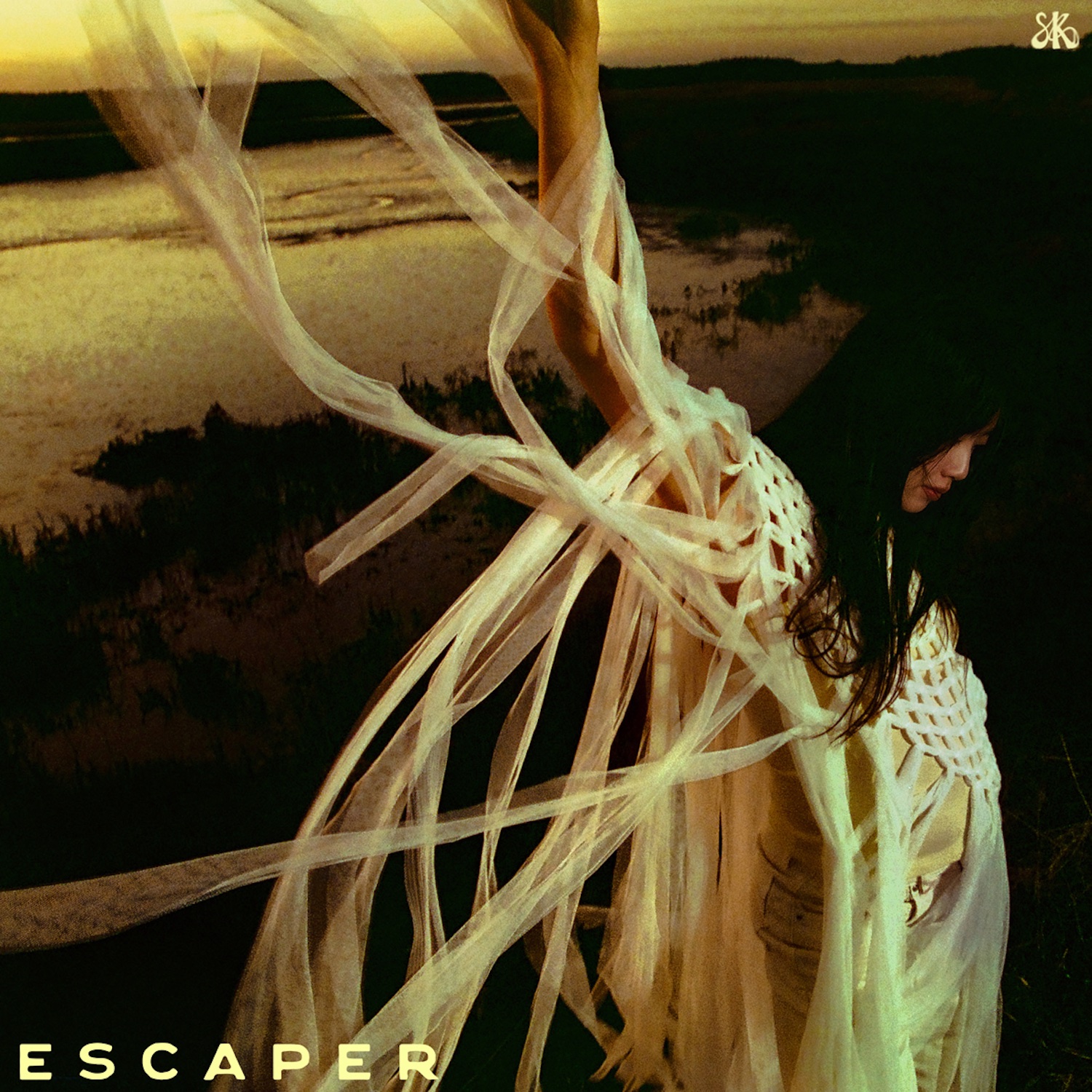
What is the significance of the name, Escaper? How, if at all, do you feel it captures the spirit of these songs?
Sarah Kinsley: Yes! I take the titles very seriously, insanely seriously. [laughs] I pondered about it for a really long time. I think Escaper is meant to imply both very optimistic and slightly negative things. I think escape, as I was saying, is very natural and very necessary to survive. But I also think escape is not the final way to heal necessarily. I feel like the stuff I was writing about in this album was an attempt to escape life. I think music can be the attempt to escape. But eventually, you kind of get to a point where you realize that the only way to move past anything is to work through it, which is kind of completely the opposite of escape. So I’m trying to… I guess by calling myself “escaper,” I’m trying to sort of wear that term very proudly and to highlight the beauty of it. But also very much acknowledge that life and relationships and love, the things that I really treasure and am highlighting in this album do not necessarily come through escape either. It’s a very complex relationship I have with the word, [chuckle] but it is everything I needed to be for this album, so yeah.
That's awesome. Along that line of thought, what is the significance for you of your debut album? What excites you about putting out this full LP after having released EPs and singles over the past five years?
Sarah Kinsley: Yeah, that’s literally it. I’ve only ever given people five songs in one bit, and it feels like… It just feels like being able to give something really full. It’s a genuine narrative, it’s something I’m trying to present as a body of work. It is an entire thing. And yeah, it feels really special and I’m very much… I don’t really take it for granted how special it is to even know people who have been through the journey of all of those other EPs and to now know that this is the first one. It’s not lost on me. But it feels very right. The timing feels correct also. I’m Chinese and I was born in the year of the Dragon, and it happens like every 12 years. And this is the second time that has happened in my life ’cause I’m turning 24, so it feels like there’s a lot of… I’m not sure really what it is in the air, but just something feels correct about this, and really intuitive. But yeah, it’s a debut. I’m really nervous as well and very excited. But it’s 12 songs that I really care about, and I’m just so excited for people to hear it. I’m really curious to know what people think. But yeah, I’m really stoked.
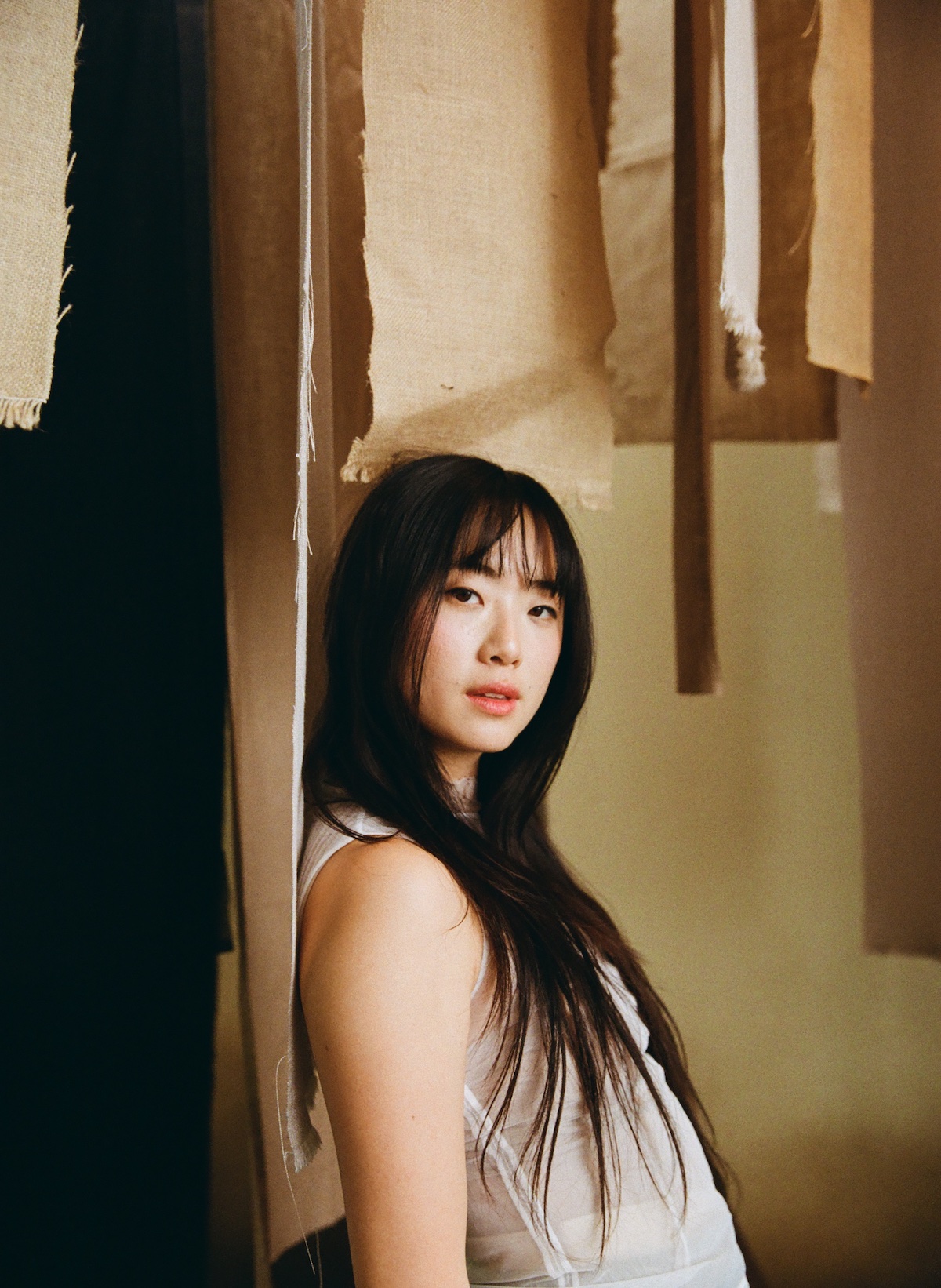
In the spirit of teasing listeners, what else can fans look forward to off this album? Anything we can share to start getting people amped up and excited?
Sarah Kinsley: The next song that is coming out is one that people have been asking for, for a few months now, which is exciting. It’s a slower song. We played it when we opened for Mitski and it was really fun, so I’m very excited to give people that song. We haven’t announced it yet, but we probably will next week, I think. But yeah. Oh my gosh, it’s still crazy to me that we’re even starting. I’ve just been sitting with the music for a while now, so I almost don’t really believe it. But yeah, it’s a very exciting time.
That's awesome! And just to pay it forward, who are you listening to these days that you would recommend to our readers?
Sarah Kinsley: I’m always listening to the Cocteau Twins, which I don’t think is even necessary to put in, because people already love them, but I’m having a bit of a Blood Orange renaissance. I have been listening to this one song by Grace Ives called “Lullaby” over and over again this week. I had a bit of a phase with this artist L’Rain a few months ago, who is based in Brooklyn, who I love. She put out a new record. I saw her at the Music Hall of Williamsburg. It was a crazy show. I had to wear earplugs, it was really intense. She did a lot of crazy stuff with pedals. I liked her first record more, I’ll say, ’cause I have one song I’m really tied to called “Two Face” on that record, but the new one’s also fantastic. The new Marías album is also fantastic.
— —
:: stream/purchase Escaper here ::
:: connect with Sarah Kinsley here ::
“Last Time We Never Meet Again” – Sarah Kinsley
— — — —
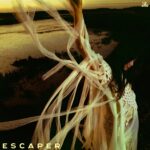
Connect to Sarah Kinsley on
Facebook, Twitter, TikTok, Instagram
Discover new music on Atwood Magazine
© Dillon Matthew
:: Stream Sarah Kinsley ::

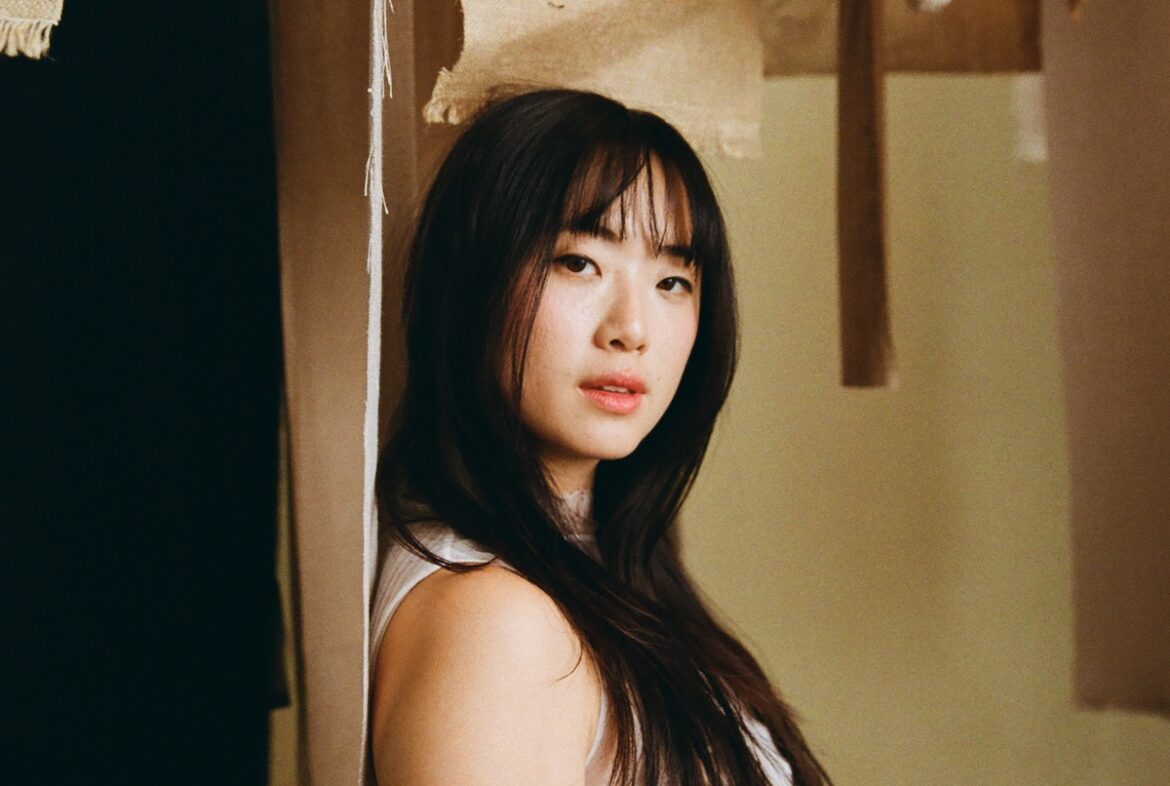
 © Dillon Matthew
© Dillon Matthew
